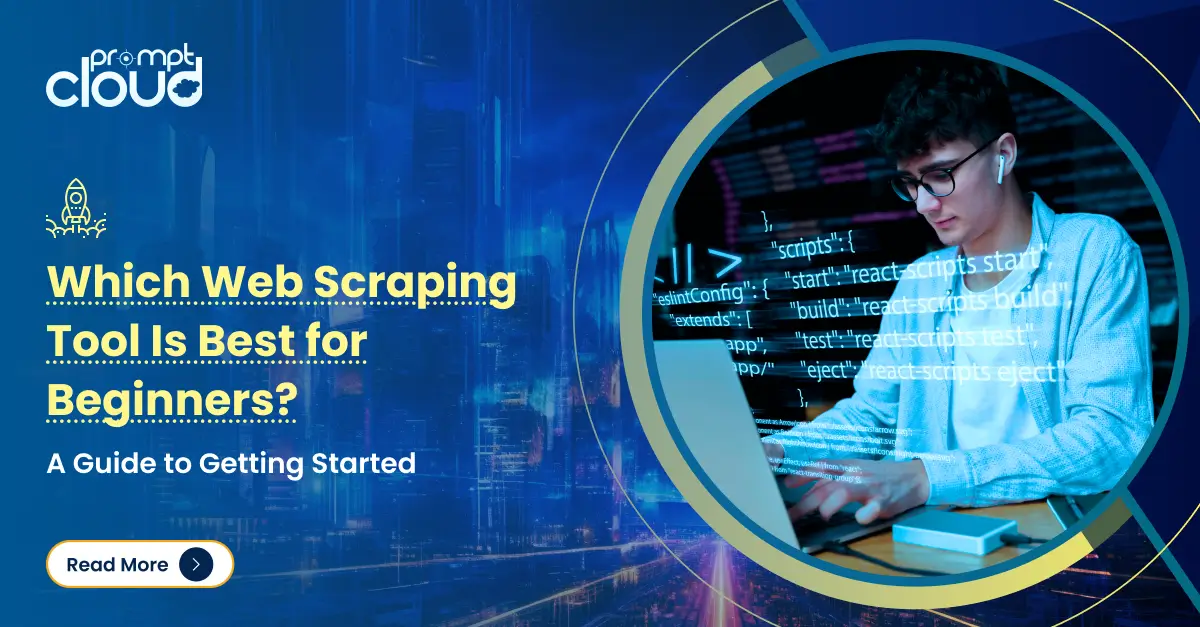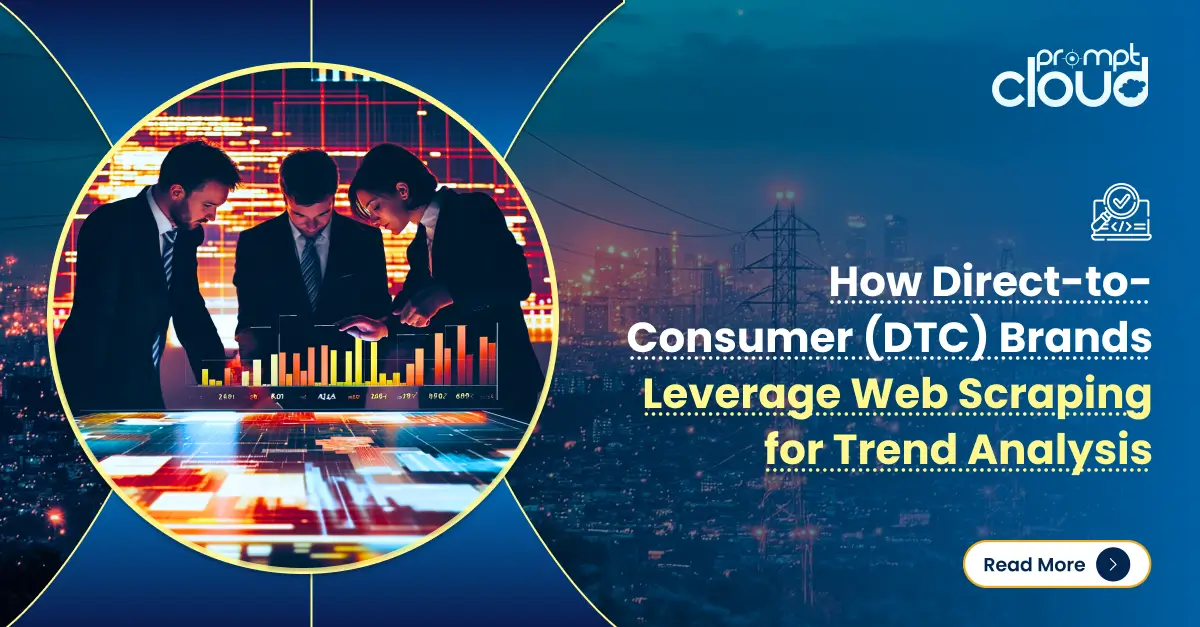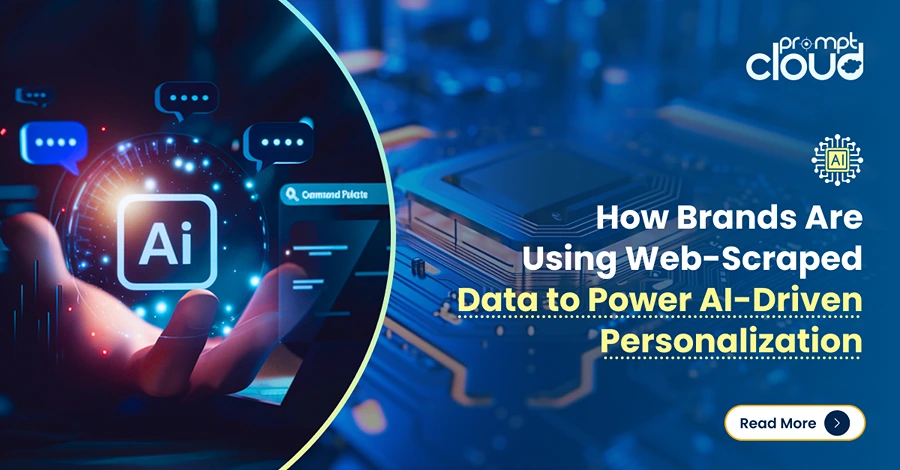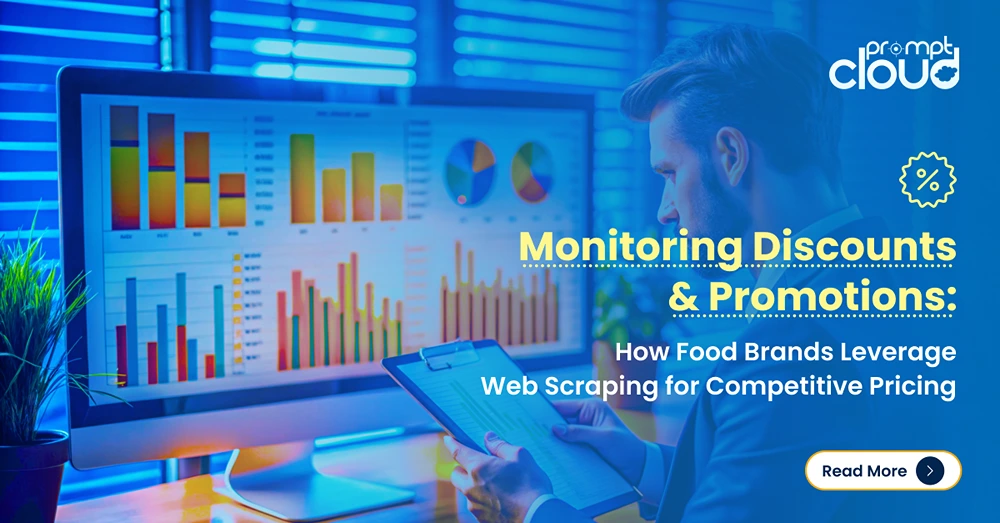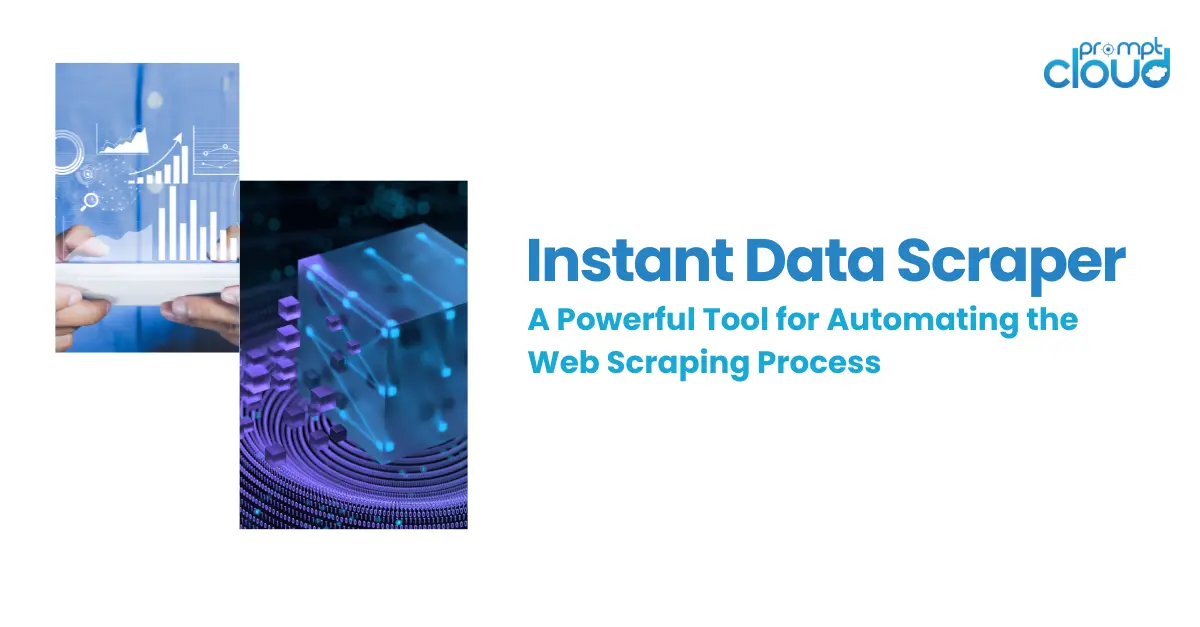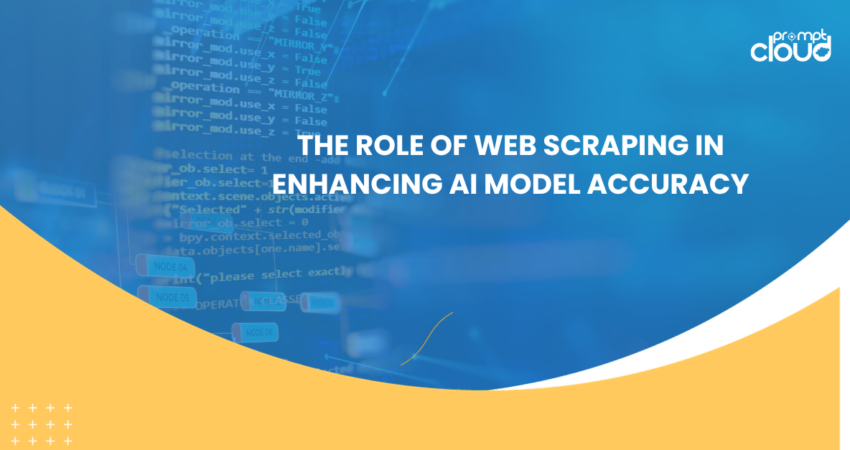
AI is constantly evolving, fueled by the immense data needed to refine machine learning. This learning process involves recognizing patterns and making informed decisions.
Enter web scraping—a vital player in the pursuit of data. It involves extracting vast information from websites, a treasure trove for training AI models. The harmony between AI and web scraping underscores the data-driven essence of contemporary machine learning. As AI progresses, the hunger for varied datasets rises, casting web scraping as an indispensable asset for developers crafting sharper and more efficient AI systems.
The Evolution of Web Scraping: From Manual to AI-Enhanced
The development of web scraping mirrors technological advancements. Early methods were basic, requiring manual data extraction—an often time-consuming and error-prone task. As the internet expanded rapidly, these techniques couldn’t keep pace with the escalating data volume. Scripts and bots were introduced to automate scraping, yet they lacked sophistication.
Enter web scraping AI, revolutionizing data harvesting. Machine learning now enables the parsing of complex, unstructured data, making sense of it efficiently. This shift not only accelerates data collection but also enhances the quality of data extracted, enabling more sophisticated applications and providing a richer feeding ground for AI models that continually learn from vast, nuanced datasets.
Image Source: https://www.scrapingdog.com/
Understanding AI Technologies in Web Scraping
Thanks to artificial intelligence, web scraping tools have become more powerful. AI automates pattern recognition in data extraction, making it faster and more accurate in identifying relevant information. AI-driven web scrapers can:
- Adapt to different website layouts using machine learning, thus reducing the need for manual template design.
- Employ natural language processing (NLP) to understand and categorize text-based data, enhancing the quality of the harvested data.
- Utilize image recognition capabilities to extract visual content, which can be critical in certain data analysis contexts.
- Implement anomaly detection algorithms to identify and manage outliers or data extraction errors, ensuring data integrity.
With the power of AI, web scraping gets stronger and more adaptable, meeting the extensive data requirements of today’s advanced AI models.
The Role of Machine Learning in Intelligent Data Extraction
Machine learning revolutionizes data extraction by enabling systems to independently recognize, comprehend, and extract relevant information. Key contributions include:
- Pattern Recognition: Machine learning algorithms excel at recognizing patterns and anomalies in large datasets, making them ideal for identifying relevant data points during web scraping.
- Natural Language Processing (NLP): Utilizing NLP, machine learning can comprehend and interpret human language, facilitating the extraction of information from unstructured data sources like social media.
- Adaptive Learning: As machine learning models are exposed to more data, they learn and improve their accuracy, ensuring that the data extraction process becomes more efficient over time.
- Reducing Human Error: With machine learning, the probability of errors associated with manual data extraction is significantly reduced, enhancing the quality of the dataset for AI models.
Image Source: https://research.aimultiple.com/
AI-Driven Pattern Recognition for Efficient Scraping
Web scraping plays a vital role in meeting the increasing demand for data in machine learning models. At the forefront of this is AI-driven pattern recognition, streamlining data extraction with remarkable efficiency. This advanced technique identifies and categorizes vast amounts of data with minimal human involvement.
Leveraging intricate algorithms, web scraping AI swiftly navigates through web pages, recognizing patterns and extracting structured datasets. These automated systems not only work faster but also significantly enhance accuracy, minimizing errors compared to manual scraping methods. As AI evolves, its ability to discern intricate patterns will continue to reshape the landscape of web scraping and data acquisition.
Natural Language Processing for Content Aggregation
The crucial function of natural language processing (NLP) comes to the forefront in content aggregation, empowering AI systems to efficiently understand, interpret, and organize data. It equips scrapers with the capacity to discern relevant information from irrelevant chatter. By analyzing text semantics and syntactics, NLP classifies content, extracts key entities, and summarizes information.
This distilled data becomes the foundational training material for models that learn to recognize patterns, anticipate user queries, and provide insightful responses. Consequently, NLP-powered content aggregation is pivotal in developing smarter, context-aware AI models. It facilitates a targeted approach in data collection, refining the raw input that feeds the insatiable data appetite of contemporary AI.
Overcoming Captchas and Dynamic Content Challenges with AI
Captchas and dynamic content present formidable barriers to effective web scraping. These mechanisms are designed to differentiate between human users and automated services, often disrupting data collection efforts. However, advancements in artificial intelligence have introduced sophisticated solutions:
- Machine Learning algorithms have significantly improved in interpreting visual captchas, mimicking human pattern recognition abilities.
- AI-driven tools can now adapt to dynamic content by learning page structures and predicting data location changes.
- Some systems utilize Generative Adversarial Networks (GANs) to train models that can solve complex captchas.
- Natural Language Processing (NLP) techniques aid in understanding semantics behind dynamically generated texts, facilitating accurate data extraction.
As the ongoing struggle unfolds between captcha creators and AI developers, each stride in captcha technology is countered by a more astute and nimbler AI-driven countermeasure. This dynamic interplay ensures a seamless stream of data, fueling the relentless expansion of the AI industry.
Enhancing Data Quality and Accuracy through the Power of AI Applications
Artificial Intelligence (AI) applications significantly enhance data quality and accuracy, pivotal for training effective models. By employing sophisticated algorithms, AI can:
- Detect and rectify inconsistencies in large datasets.
- Filter out irrelevant information, concentrating on data subsets vital for model understanding.
- Validate data against pre-established quality benchmarks.
- Perform real-time data cleansing, which ensures the training datasets remain updated and accurate.
- Use unsupervised learning to identify patterns or anomalies that may escape human scrutiny.
Using AI in data preparation doesn’t just make the process smoother; it elevates the quality of insights obtained from the data, resulting in smarter and more dependable AI models.
Scaling Up Web Scraping Operations with AI Integration
Integrating AI into web scraping practices significantly enhances the efficiency and scalability of data collection processes. AI-powered systems can adapt to different website layouts and extract data accurately, even if the site undergoes changes. This adaptability stems from machine learning algorithms that learn from patterns and anomalies during the scraping process.
Moreover, AI can prioritize and categorize data points, recognizing valuable information swiftly. Natural Language Processing (NLP) skills allow scraping tools to understand and process human language, thus enabling the extraction of sentiment or intent from textual data. As scraping jobs increase in complexity and volume, AI integration ensures these tasks are performed with reduced manual oversight, leading to a more streamlined and cost-effective operation. Implementing such intelligent systems facilitates:
- Automating the identification and extraction of relevant data
- Continuously learning and adapting to new web structures
- Parsing and interpreting unstructured data with NLP techniques
- Enhancing accuracy and reducing the need for human intervention
Upcoming Trends: The Future Landscape of Web Scraping AI
As we navigate the ever-evolving realm of Artificial Intelligence, a focal point emerges on the remarkable advancements in web scraping AI. Explore these pivotal trends shaping the future:
- Comprehensive Comprehension: AI expands to understand videos, images, and audio contextually.
- Adaptive Learning: AI adjusts scraping strategies based on website structures, reducing human intervention.
- Precise Data Extraction: Algorithms are fine-tuned for accurate and relevant data extraction.
- Seamless Integration: AI-powered scraping tools integrate seamlessly with data analytics platforms.
- Ethical Data Acquisition: AI incorporates ethical guidelines for user consent and data protection.
Image Source: https://www.scrapehero.com/
Experience the synergy of web scraping and AI for your data needs. Reach out to PromptCloud at sales@promptcloud.com for cutting-edge web scraping services that elevate the accuracy of your AI models.
FAQs:
Can AI do web scraping?
Certainly, AI is adept at handling web scraping assignments. Equipped with advanced algorithms, AI systems can independently traverse websites, identify patterns, and extract pertinent data with notable efficiency. This capability marks a significant advancement, amplifying the swiftness, precision, and flexibility of data extraction procedures.
Is web scraping illegal?
When it comes to the legality of web scraping, it’s a nuanced landscape. Web scraping itself isn’t inherently illegal, but the legality hinges on how it’s executed. Responsible and ethical scraping, aligned with the terms of service of the targeted websites, is crucial to avoid legal complications. It’s essential to approach web scraping with a mindful and compliant mindset.
Can ChatGPT do web scraping?
As for ChatGPT, it doesn’t engage in web scraping activities. Its forte lies in natural language understanding and generation, providing responses based on the input it receives. For actual web scraping tasks, specialized tools and programming are necessary.
How much does scraper AI cost?
When considering the cost of scraper AI services, it’s important to factor in variables like the complexity of the scraping task, the volume of data to be extracted, and specific customization needs. Pricing models may include one-time fees, subscription plans, or usage-based charges. For a personalized quote tailored to your requirements, it’s advisable to reach out to a web scraping service provider like PromptCloud.











